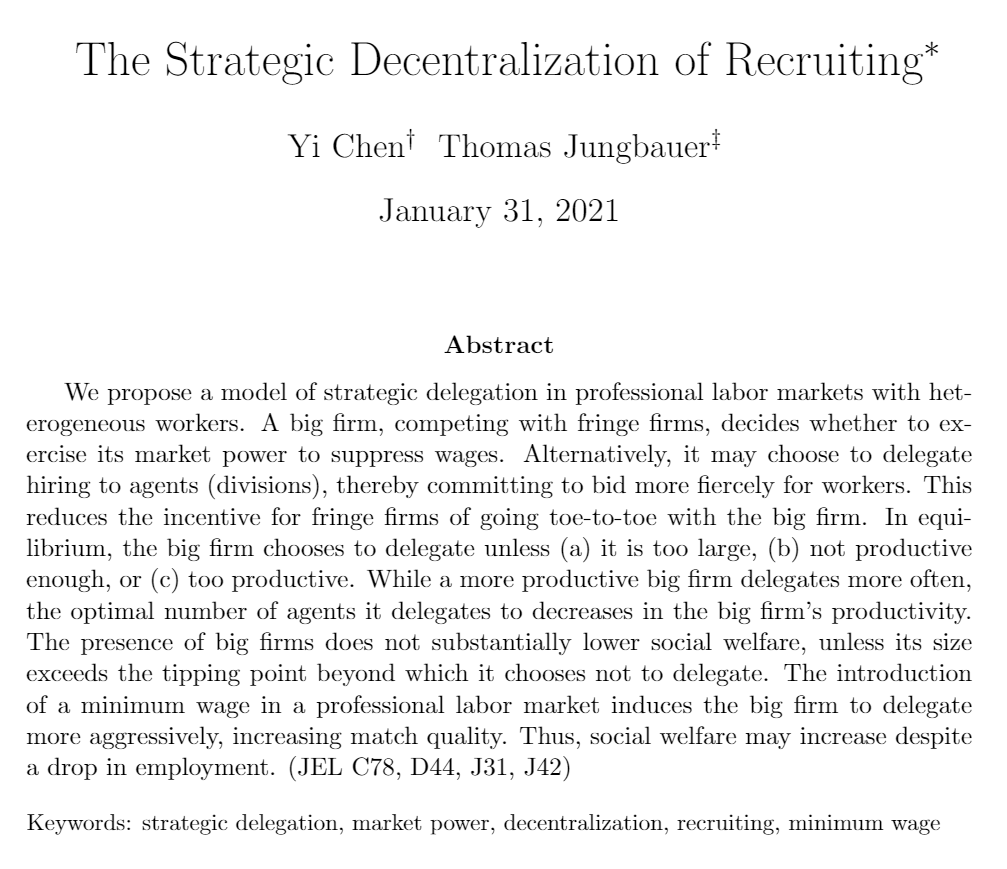
Why do firms decentralize recruiting? Larger firms are impersonal, slow to act, and struggle to leverage expertise. Thus, we expect larger firms to decentralize hiring more often. This intuition, however, is flawed (thomas-jungbauer.com/research/).
A 2017 study by Mercer indicates that, for the large part, the opposite is true. In “The Strategic Decentralization of Recruiting,” co-authored with my colleague Yi Chen, we show how market power in professional labor markets may justify this behavior.
The bigger a firm, the larger its market power, i.e., its ability to dampen wages across the market. On the other hand, when a firm delegates hiring to divisions, it increases wages through competition among its divisions.
Outside competitors, however, foresee that this increased level of competition makes aggressive bidding less worthwhile, and reduce their own bids for workers. As a consequence, the delegating firm may hire more skilled workers without overly raising wages.
We describe this tradeoff between market and commitment power, and the resulting delegation patterns as a function of firm size and its productivity. We find that both highly productive as well as non-productive firms never decentralize recruiting in a given labor market.
